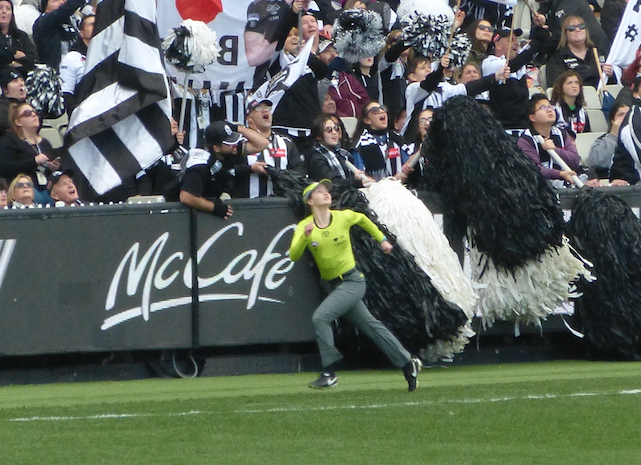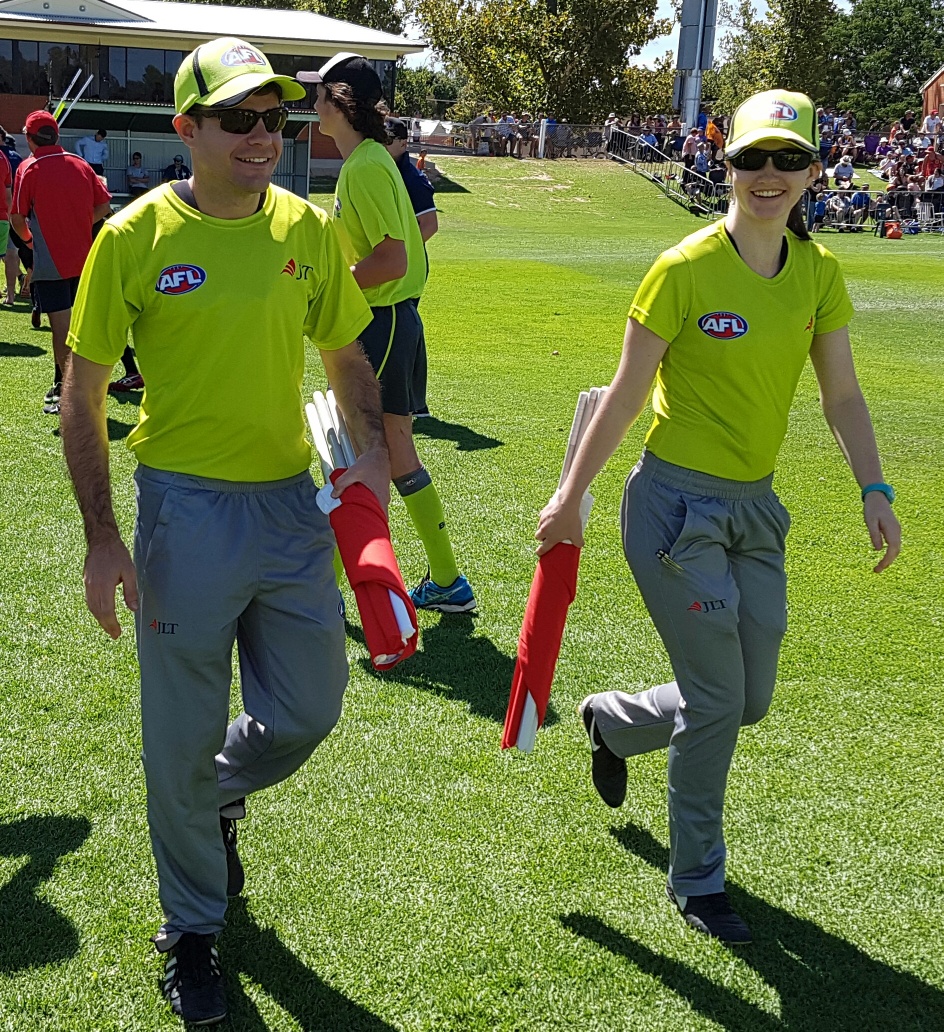AFL goal umpire, Rose O’Dea has put her umpiring career on hold as she takes a bold step to further her career. I chatted with Rose last week to gain a better understanding of what she was doing and why. Her responses make for an engaging chat. Read on to see what she wants to do and her reflections on footy, being female and taking control of her career.
You have been awarded a prestigious scholarship, who offered the scholarship and why did you apply?
The Endeavour Postgraduate Scholarship is sponsored by the Australian Government Department of Education and Training, and it’s open to students in the first two years of their PhD. I found out about the program before I started my PhD and had always planned on applying. Academic research is collaborative and international, so by getting me out of my comfort zone in a new lab in a new country I’ll develop really valuable skills. When I found out my application was successful it was too good an opportunity to turn down.
Will your PhD work continue in Canada or does that go on hold while you are working on something completely new?
It’s a continuation of my PhD, but a new chapter — literally and figuratively
The focus of your PhD work has been fish and their adaptation to climactic and environmental change. What are some of the challenges you face in delivering your body of work?
In simple terms, my work has focused on phenotypic variation (the characteristics of an organism that we can measure, such as behaviour), and how this is related to variation in the environment (such as rearing at different temperatures) and variation in the genotype (which genes are turned on and off). Evolution relies on heritable variation. There can be variation between individuals in a population (e.g. Bob is bold, John is shy), and there can be variation within individuals in a population (Bob and John are sometimes bold and sometimes shy). It’s time consuming to quantify this variation (you need to observe Bob and John over a long period of time, in different situations). I’ve spent a lot of time observing zebrafish. Now I will need to spend a lot of time learning statistics to understand what the data means, reading to understand how it relates to other people’s work, and writing to publish the results.
Your studies have always dovetailed nicely into your football world, that has enabled both to flourish but you have made significant personal sacrifices, how has that impacted on your enjoyment of footy? Has it had an impact your performance?
My first year on the AFL list was the first year I started doing research, and fitting them around each other required a lot of forward planning and judicious choices of study systems (field work was out of the question). There’s opportunity costs to everything, and meeting expectations at both jobs meant sacrificing leisure time and hobbies. Umpiring in the AFL was a goal I worked hard for over a long period of time, but it also made watching AFL a reminder of stresses, rather than a distraction from them. It was also the most exhilarating experience of my life: in the words of Billie Jean King, pressure is a privilege.
You umpired in 45 AFL games over 4 years, what did you learn about yourself over that time?
I’ve been umpiring since I was 14, so it has shaped the person I am now. I think the biggest thing it has taught me is courage and resilience. It takes courage to umpire in the AFL, because there’s a risk of failure under intense scrutiny, and it takes resilience to cope when failure happens. When I was a developing umpire I would fret endlessly over mistakes I made: an unnecessary straddle I had in a Canberra grand final haunted a whole summer. The pressure of AFL enabled me to develop the maturity and pragmatism to learn from mistakes and move on.
As only the 3rd woman to umpire AFL football in the history of the game what impact, if any, does that have on your as you reflect on your time in elite sport? Did being a role model ever worry you?
Being a woman in an extremely male dominated sport has been a strange and insightful experience, and I could write a lengthy essay on the topic. I felt an added pressure and scrutiny that was sometimes difficult to cope with. The possibility of being a role model was one of the perks of my added visibility, and I always liked the stories of children sitting behind the goals who would exclaim “it’s a girl!”. I hope it won’t be long before there are so many women umpiring in the AFL that it’s no longer remarkable, but progress is slow and it’s not inevitable.
One of the things that amazes me about umpires, is the manner in which they go about their roles on the field. They never get flustered or lose their cool. Goal umpires glided effortlessly into position. How did you perfect those skills in your game?
Practice! Goal umpiring is a lot harder than it looks, and it feels very unnatural at the start. Eventually you develop the muscle memory – and the poker face – to do the basics on autopilot, so that you can concentrate on the more technical aspects.
You are in Canada for 12 months, what then?
I’ll be back in Sydney for at least another year to finish writing my thesis, and will be keen to continue my involvement with umpiring.
Rose, thanks for the chat, good luck with your endeavours over the next twelve months. I’m sure you won’t be lost to umpiring, perhaps as we discussed a note to Canada AFL and a gig as a field umpire will keep you fit and practised.
Thanks, and thanks to all the coaches and colleagues who have helped me along the way. I wish the umpiring community all the best for 2018.


